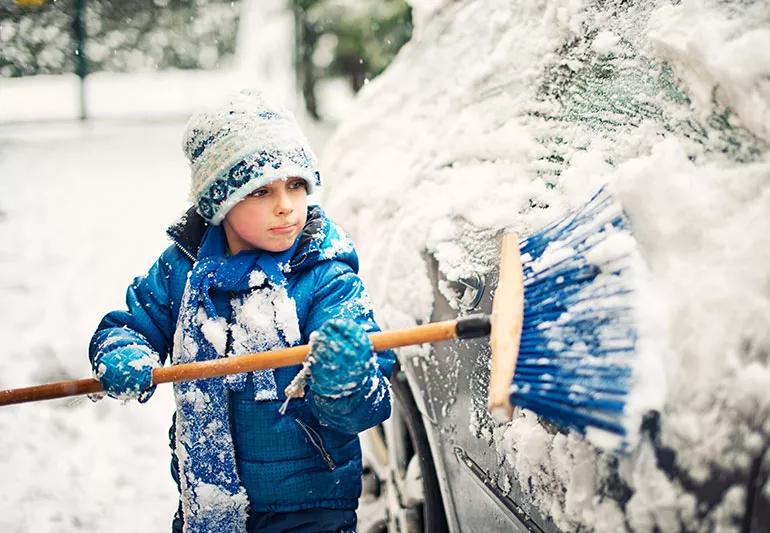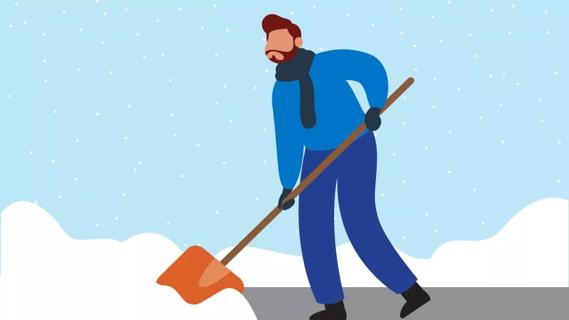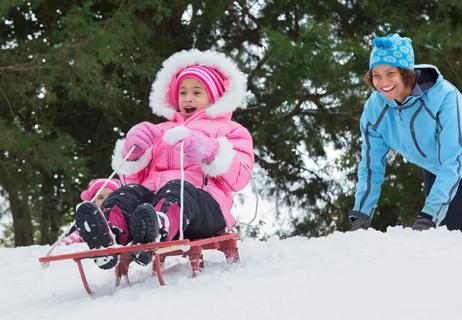Some heat escapes if you don’t wear a hat, but it’s not as much as you might think

A: Nobody wants to question their mother. With that in mind, let’s start with this: Mom is right about wearing a hat when it’s cold outside. Her math on heat loss, however, is a bit off.
Advertisement
Cleveland Clinic is a non-profit academic medical center. Advertising on our site helps support our mission. We do not endorse non-Cleveland Clinic products or services. Policy
The truth is, you won’t squander anywhere close to 50% of your body heat through an uncapped noggin. Will you lose some heat? Absolutely … but a 2008 study shows that it’s more in the 10% range for adults.
That figure makes sense, as it roughly matches the head’s percentage of your body’s total surface area. Or to put it another way, you’re losing heat in direct proportion to the amount of exposed skin.
Going without a hat when the temperature takes a polar plummet essentially brings the same result as wearing a pair of shorts (bare legs) or a tank top (bare arms). Basically, you’re getting cold if you’re not covered.
The lesson here is that you can shed heat from any part of the body that’s facing the elements “au naturel.” No one area sheds significantly more heat than another.
So where did the myth about heat pouring out of your head originate? Most point to an old U.S. Army Field Manual that estimated soldiers could lose 40% to 45% of their body heat through an unprotected head.
But using that logic means that you could be naked except for a hat and lose about the same amount of body heat as a fully clothed person with a bare head. Not likely, right?
That’s why this cold weather myth melts under the heat of a more scientific examination.
Advertisement
But let’s get one thing straight: It’s best to wear a hat when it gets cold. Frigid weather isn’t exactly skin-friendly. Frostbite symptoms can start to develop quickly on any exposed skin — especially ears and noses — when temperatures dip into the single digits Fahrenheit.
Plus, you do lose some body heat through your head — which can eventually lead down the road toward hypothermia.
One more bit of information, too: Children tend to lose a higher percentage of body heat through their heads. The reason? Compared to adults, their heads are bigger in comparison to their bodies.
So maybe Mom was onto something, after all.
— Emergency physician Thomas Waters, MD
Advertisement
Learn more about our editorial process.
Advertisement

Used correctly, a humidifier can help with nose bleeds, allergies, dry skin, sleep quality and more

Stretch before heading outside, keep proper form and avoid jerking or twisting to throw snow

If the flakes are undisturbed, pristine white and come from the top layer, it’s typically safe to indulge in a scoop

Bottom line? Dress warm, be careful and plan ahead to get the most out of the season

Sneak in exercise when you can, pack your own lunch and make time for mental health

Taking slow, short steps and wearing proper footwear can go a long way in preventing falls

With planning and precautions, you may be able to keep winter health issues at bay

An ER doc shares tips for being careful while having fun

Wearing a scarf, adjusting your outdoor activities and following your asthma treatment plan can help limit breathing problems

Your diet in the weeks, days and hours ahead of your race can power you to the finish line

When someone guilt trips you, they’re using emotionally manipulative behavior to try to get you to act a certain way